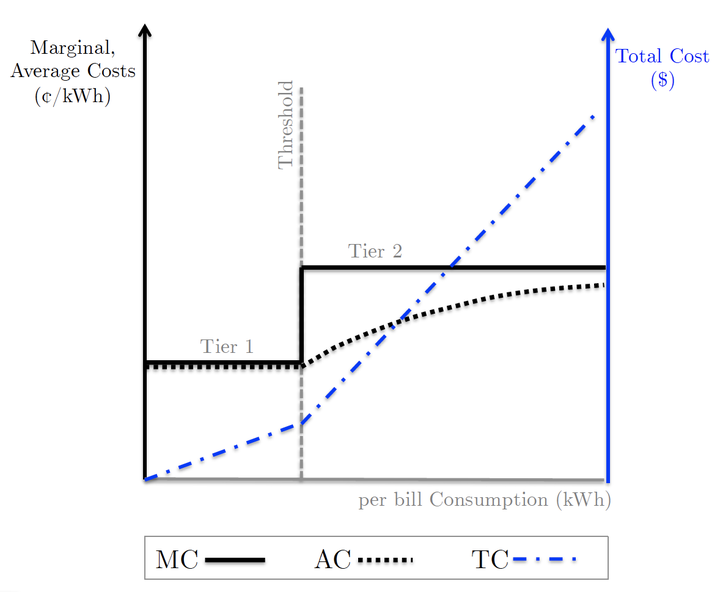Misunderstanding Nonlinear Prices: Evidence from a Natural Experiment on Residential Electricity Demand

Abstract
This paper examines how consumers respond to nonlinear prices. Exploiting a natural experiment with electricity consumers in British Columbia, I find evidence that some households severely misunderstand nonlinear prices| incorrectly perceiving that the marginal price applies to all consumption, not simply the last unit. While small in number, the exaggerated responses by these households have a large effect in aggregate, masking an otherwise predominant response to average price. Previously largely unexplored in the literature, this type of misunderstanding has important economic, policy and methodological implications beyond electricity markets. I estimate the welfare loss for these households to be the equivalent of 10% of annual electricity expenditure.